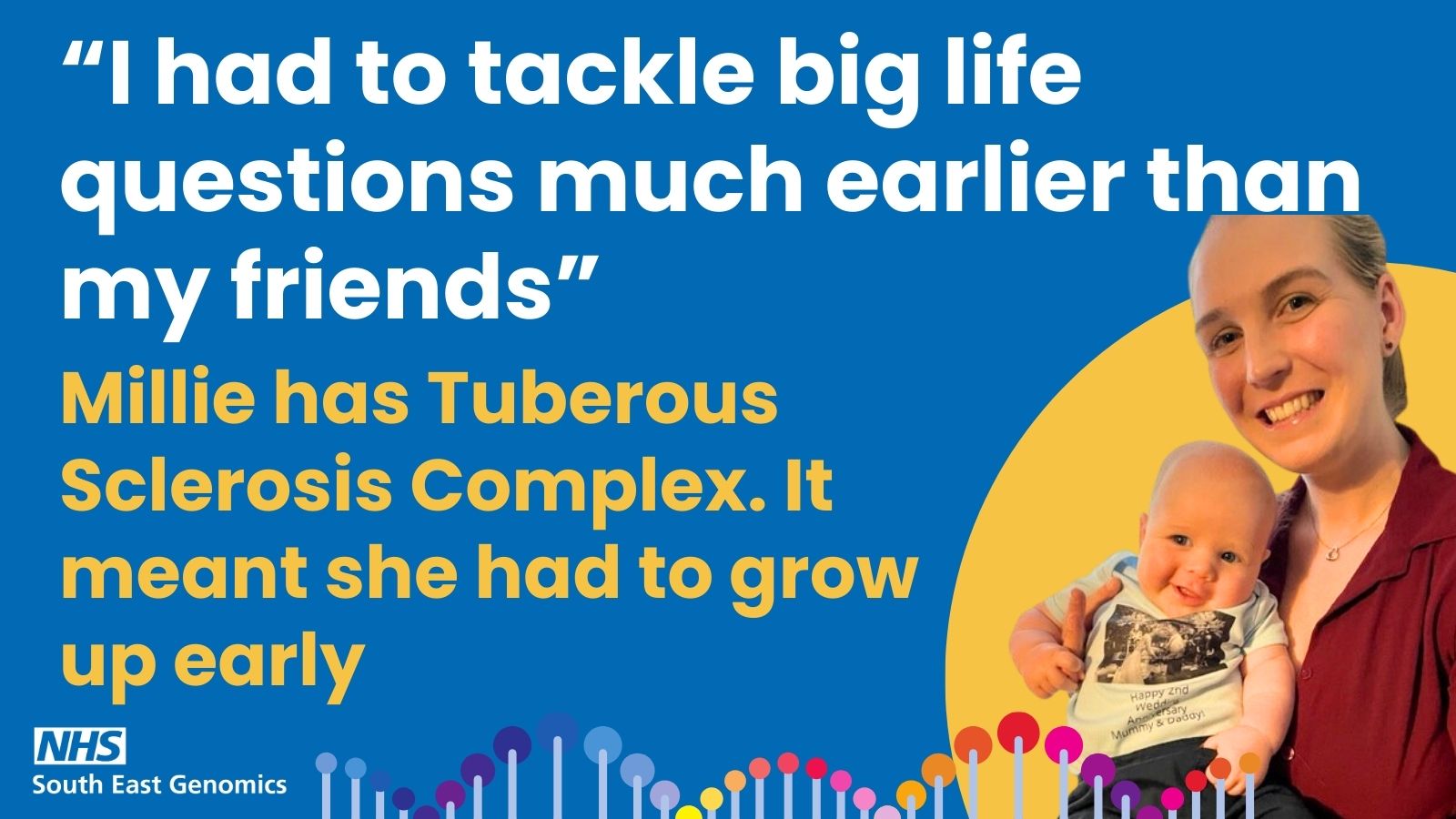
Millie has just turned 30. She had her first epileptic seizure when she was just 11 months old and was then diagnosed with the rare genetic condition, Tuberous Sclerosis Complex (TSC).
Throughout her childhood, Millie had many seizures and multiple hospital appointments. TSC causes a wide range of symptoms. The most common is epilepsy, but many people also experience learning difficulties, autism and non-cancerous tumours grow on their organs, especially the kidneys, which may cause complications.
Millie was started on medication as a young child which dealt with her tonic clonic seizures but her epileptic focal seizures continued every week into adulthood.
“Having TSC made me grow up early. I had to tackle big life questions much earlier than my friends.”
When Millie was 21, she asked for genomic testing to understand the gene error that may have caused the TSC. So far, these tests haven’t provided any answers but Millie knows the technology and research is moving so rapidly that she may get the answers she’s looking for in the future.
“I know it sounds strange, but the negative result from the genetic testing was really upsetting. I have all the symptoms of TSC, and my Doctors all tell me that I have TSC, but the genetic test couldn’t find any proof.”
Tuberous Sclerosis Complex is caused by mutations in two genes called TSC1 & TSC2. Millie’s doctors, including Clinical Geneticist Dr Frances Elmslie, believe that Millie has a change in one of these genes, but the technology hasn’t yet been able to find it.
“Research in people who, like Millie, are mildly affected by TSC has shown that they often have a gene change in some cells but not all of them.” explains Dr Elmslie. “This is called mosaicism and it makes the gene change harder to find. Our technology is getting better all the time so we may have more answers for people like Millie in the future.”
Three years ago, Millie had brain surgery which successfully treated her epileptic seizures and she is now seizure free.
“At first I felt a bit lost. The epilepsy and the seizures have been an important part of my life. It’s made me who I am today.”
Millie has used her personal experience to become a Children’s Nurse on the neurology ward at Great Ormond Street Hospital. She is passionate about supporting young people to normalise their epilepsy.
“Several years ago someone told me that I couldn’t be a nurse because I had epilepsy. She told me that the stress of nursing would bring on seizures. I was determined to prove her wrong!”
I had to start thinking about children when I was 21, even though I wasn’t ready for them.
Long before Millie met her husband she had to think about her options for having children. Not having a genetic diagnosis has made that process harder as Millie was not eligible to have her embryos screened for the TSC genes prior to fertilisation.
“I needed to do everything I could so that we could make an informed decision about starting a family. Then we needed to decide what to do with that information.”
In the last month, Millie has turned 30, moved house and had a baby boy. He’s only a few weeks old but has already had a kidney ultrasound and brain MRI. All the tests have come back negative.
“I’ve had great care from the NHS. Both of us are being well looked after and I feel totally supported.”
